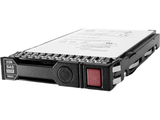Optimizing Storage Performance with HPE SSDs for MSA 1060/1062 and MSA 2060/2062 SAN Systems
In the ever-evolving landscape of data storage, businesses are continuously seeking faster, more reliable, and efficient solutions to manage their expanding data needs. Hewlett Packard Enterprise (HPE) provides a robust range of Solid-State Drives (SSDs) designed to enhance the performance and efficiency of their Modular Smart Array (MSA) storage systems. Among these, the MSA 1060/1062 and MSA 2060/2062 models stand out as versatile SAN (Storage Area Network) solutions, offering a perfect blend of performance, scalability, and affordability.
Overview of HPE MSA Storage Systems
The HPE MSA 1060/1062 and MSA 2060/2062 are advanced entry-level storage solutions aimed at small to medium-sized businesses (SMBs) and remote office/branch office (ROBO) environments. These systems provide the reliability and functionality that businesses need without breaking the bank, making them an ideal choice for organizations that require cost-effective storage solutions without sacrificing performance.
MSA 1060/1062: These models serve as the next generation of HPE’s entry-level SAN storage, offering improved performance, expanded connectivity options, and enhanced data protection features. They are designed for businesses that need to manage growing data volumes while staying within budget.
MSA 2060/2062: Targeting environments with higher performance requirements, the MSA 2060/2062 models offer greater flexibility and scalability. With features like automated tiering, virtualization, and advanced data services, they are built to handle more demanding workloads and provide a future-proof solution for growing businesses.
The Role of SSDs in Modern Storage Systems
SSDs have revolutionized the storage industry, providing significant advantages over traditional Hard Disk Drives (HDDs). Here’s why SSDs are essential in modern storage environments:
1. Speed and Performance: SSDs deliver exceptional data transfer speeds and reduced latency, significantly improving application performance. This is critical for businesses that rely on real-time data access and processing.
2. Reliability: Unlike HDDs, which have mechanical components that can wear out over time, SSDs use flash memory with no moving parts. This enhances their durability and makes them less prone to failure, resulting in higher reliability.
3. Energy Efficiency: SSDs consume less power, reducing both energy costs and heat generation. This is particularly important for data centers and businesses that prioritize sustainability.
4. Higher IOPS: SSDs provide significantly higher Input/Output Operations Per Second (IOPS) than traditional HDDs, making them ideal for applications that require fast and frequent data access, such as virtualization, databases, and analytics.
HPE SSD Options for MSA 1060/1062 and MSA 2060/2062
HPE offers a diverse range of SSDs tailored to meet the performance and capacity requirements of different workloads in MSA 1060/1062 and MSA 2060/2062 storage systems. These drives are available in various categories to suit specific business needs:
1. Read-Intensive SSDs: Designed for environments where read operations are predominant, such as content delivery networks and database querying. These SSDs offer a cost-effective balance of performance and durability for read-heavy workloads.
2. Mixed-Use SSDs: For environments that require a balance between read and write operations, mixed-use SSDs provide the flexibility to handle both types of workloads efficiently. These are ideal for applications like email servers, virtual desktop infrastructure (VDI), and general-purpose storage.
3. Write-Intensive SSDs: These SSDs are optimized for workloads that involve frequent write operations, such as transaction processing and high-performance computing. They provide the endurance and reliability needed to handle high write volumes over time.
4. Capacity SSDs: For organizations with substantial data storage needs, capacity SSDs offer a solution that maximizes storage space while still benefiting from the speed and reliability of SSD technology.
Benefits of HPE SSDs in MSA 1060/1062 and MSA 2060/2062 Storage Systems
By integrating HPE SSDs into your MSA 1060/1062 or MSA 2060/2062 storage system, you can unlock a range of benefits that enhance your storage infrastructure:
1. Enhanced System Performance: SSDs dramatically reduce data access times, resulting in faster application performance and reduced latency. This is crucial for businesses that need to maintain high performance levels in their IT environments.
2. Scalability and Flexibility: HPE SSDs allow businesses to scale their storage infrastructure seamlessly as their data needs grow. Whether you need to increase performance or expand storage capacity, HPE’s SSD offerings ensure that your system can adapt without compromising on performance.
3. Data Protection and Durability: HPE SSDs are equipped with advanced features like error correction, wear leveling, and power loss protection, ensuring data integrity and prolonging the lifespan of the drives.
4. Lower Total Cost of Ownership (TCO): Although SSDs may have a higher initial cost compared to traditional HDDs, their superior performance, reliability, and energy efficiency contribute to a lower TCO over the lifecycle of the storage system. This makes SSDs a cost-effective investment for businesses looking to maximize their ROI.
Conclusion
HPE SSDs for the MSA 1060/1062 and MSA 2060/2062 SAN storage systems provide a powerful solution for businesses seeking to enhance their storage performance, reliability, and scalability. Whether your organization requires read-intensive, mixed-use, write-intensive, or capacity-focused SSDs, HPE’s offerings are designed to meet the diverse needs of modern IT environments. By integrating these SSDs into your MSA storage system, you can ensure that your data is stored securely, accessed quickly, and managed efficiently, helping your business stay competitive in a data-driven world.
Recent Posts
-
Accelerate Your Enterprise: Unleashing the Power of the HPE 300GB 15K RPM SAS-12Gbps Smart Drive
In today's enterprise IT environments, the demand for high-performance, reliable, and secure storage …Jan 28th 2025 -
Accelerate Enterprise Performance: Exploring the HPE 900GB 10K RPM SAS-12Gbps Hard Drive for ProLiant Servers
In the realm of enterprise computing, choosing the right storage solutions is critical for achieving …Jan 27th 2025 -
Secure and Reliable Storage: HPE 1TB 7200RPM SAS-12Gbps SFF Hard Drive for ProLiant Servers
The HPE 1TB 7200RPM 2.5-inch Small Form Factor (SFF) Digitally Signed Firmware Hard Drive is a robus …Jan 22nd 2025




